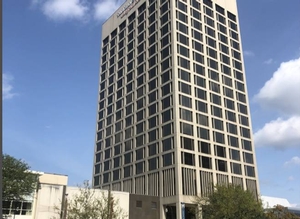Massachusetts Sick Leave Law
By Joseph T. Bartulis, Jr. on October 19, 2019In November 2014, Massachusetts voters passed a ballot question to require all Massachusetts private sector employers to grant employees time off from work for sick leave. The law took effect July 1, 2015 and contains a number of interesting nuances detailed below.
OVERVIEW OF THE NEW LAW
All private sector employers in Massachusetts are now required to afford employees up to 40 hours of sick leave per year. Whether the sick leave is paid for or not depends upon the number of employees the employer has. If the employer has 11 or more employees, the employer must provide these days as paid leave. Conversely, while those employers with 10 or fewer employees also need to allow for the use of up to 40 hours of sick time, the employees’ use of those hours need not be paid.
NUMBER OF EMPLOYEES
Unlike employment laws which define employees by the number of hours they work or by some other measure, the new sick leave law does not define employee with any degree of precision. It merely defines an employee as “any person who performs services for an employer for wage, remuneration, or other compensation.” Accordingly, unless and until further insight is provided in the regulations anticipated from the Attorney General’s office before the effective date of the law, one should consider all employees as counting toward the 11-person threshold -- regardless of whether they are full-time, part-time, seasonal, temporary, etc. Suffice it to say, any person who is working as a W2 employee should be counted. Absent contrary information contained in the forthcoming regulations from the Attorney General’s office, temporary workers who provide services to your company as employees of another employer (e.g., temp/staffing agency) and those people who provide services as independent contractors need not be counted. (For guidance on whether a worker may be properly classified as an independent contractor rather than employee, see my prior article on our website, A Quick Look at the Rigid Massachusetts Independent Contractor Law.)
HOW SICK TIME IS EARNED
The new sick leave law provides that employees will accrue, beginning on July 1, one hour of sick leave for every 30 hours of work performed by hourly paid employees, to a maximum accrual of 40 hours. Salaried employees are assumed, for sick leave accrual purposes, to work 40 hours per week. Once an employee has accrued 40 hours of sick leave in a given year, he or she will not accrue any more sick days regardless of the number of hours he or she actually worked during the rest of the year. Newly hired employees may not access any accrued statutory sick leave until they have completed 90 days of employment with that employer. Not surprisingly, there is nothing in the new law, for example, which requires an employer that presently has a more generous sick leave accrual policy from granting more than 40 hours of sick leave in a year, or from allowing new hires to access their sick leave earlier than after 90 days of employment.
WHAT SICK TIME MAY BE USED FOR
While many Massachusetts employers, understandably, have generous sick leave policies and broadly define the allowable uses for sick time, there are some employers that offer sick time only when their employee is actually the one who is sick. Those employers do not allow it to be used for the sickness of another person. Under the new law, limiting sick leave use to an employee’s illness will not be permitted. In addition to allowing sick employees to access their sick leave when they are sick, injured, etc., the new law also provides that employees may use their accrued sick time to care for any sickness, injury or medical condition of one’s children, spouse, parent or spouse’s parents. Additionally, employees may use accrued sick time to address issues related to the effects of domestic violence – including psychological and legal effects, in addition to physical effects. (For more guidance on domestic violence leave, please see my prior article on our website, Massachusetts Passes Legislation Requiring Covered Employers to Provide Domestic Violence Leave for Employees.)
Just as many employers presently have sick leave policies that cover only sick employees and not their family members, many employers with paid sick leave require that employees take sick leave in increments of full, half, or quarter days of work. Under the new law, employees may use sick time in increments as small as one hour (or even smaller increments if the employer provides for it.)
LOGISTICAL QUESTIONS RAISED BY THE NEW LAW
Beyond the scope of this short article, Massachusetts employers may have a number of additional logistical questions regarding the new sick leave law. I will now briefly detail a few of the most common areas.
- First, there is nothing in the new law which requires that employers who presently offer more generous sick leave and/ or who offer one broad category of paid leave time which encompasses vacation, personal and sick time which collectively meets or exceeds the statutory sick leave requirements to change their current leave time offerings, so long as the accrual and usage elements of the employer’s policy also meet or exceed the requirements of the law.
- Second, as is the case presently, there is nothing in the new law which requires an employer to pay an employee for unused sick time when he or she leaves the employer’s employ.
- Third, the new law does allow employees to carry over unused sick time from one year into the next. Employees may now carry over as many of their then-current year’s sick days as they have remaining, up to a maximum of 40 hours, into the next year. When this carryover occurs, the employer is not required to allow the employee to accrue additional sick days.
- Fourth, the new law is very precise about when an employer may request the production of documentation regarding the illness. An employer may not request medical documentation regarding an employee’s absence unless the employee has missed 24 or more consecutive scheduled work hours.
- Fifth, for employers with unionized employees who are covered by a collective bargaining agreement, the new sick leave law makes it clear that nothing in the new law creates a unilateral right of an employer to alter a more generous sick leave benefit in the bargaining agreement. Likewise, the new sick leave law does not absolve an employer from having to bargain over sick leave, which is a mandatory subjectof bargaining, if the union makes a proposal to do so at collective bargaining negotiations.
- Sixth, an employer may not require an employee to look for nor find a replacement worker to fill in for him or her as a prerequisite to being allowed to access accrued sick leave.
CONCLUSION
While we await further guidance from the Attorney General’s office regarding some of the intricacies of the new law in the forthcoming regulations, all private sector employers in Massachusetts will need to review their current employee handbooks and revise them as needed to comply with new requirements regarding, among other things, how sick time is accrued, what it can be used for, how it can be carried forward into the next year, and when documentation can be required, etc. If you would like to have your company’s employee handbook reviewed to make sure it is compliant with this and the myriad of other employment laws that have changed in recent years, please contact me today.

















